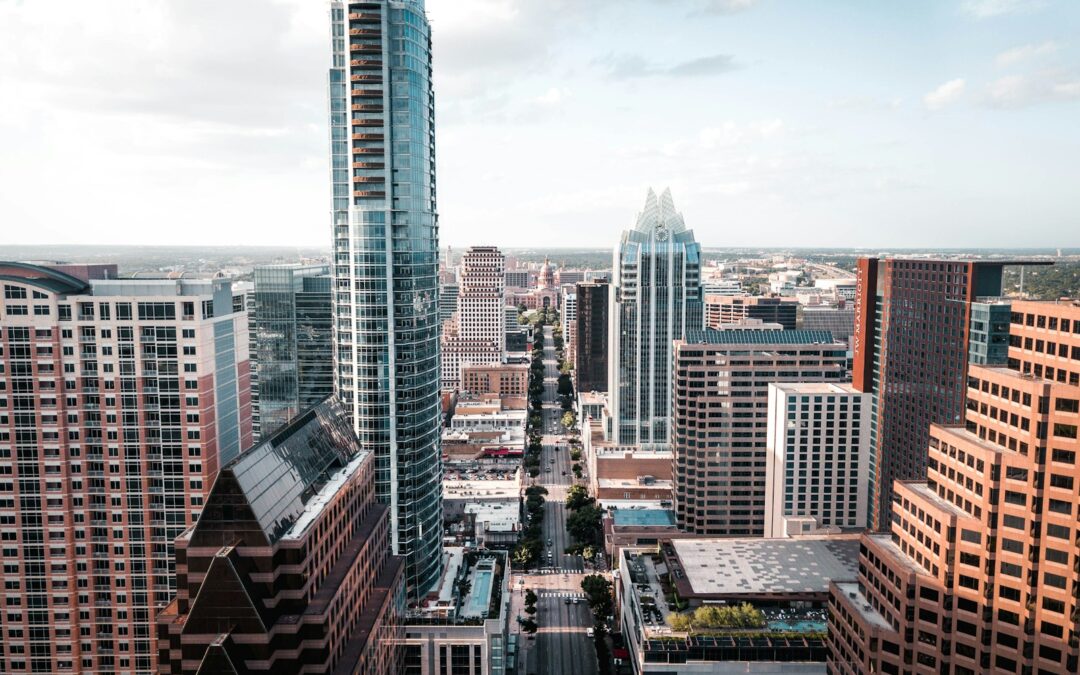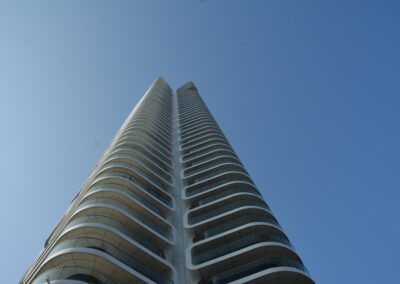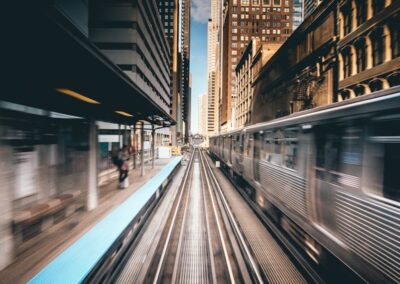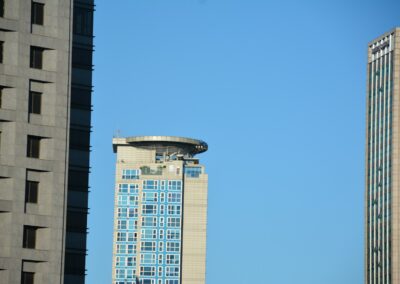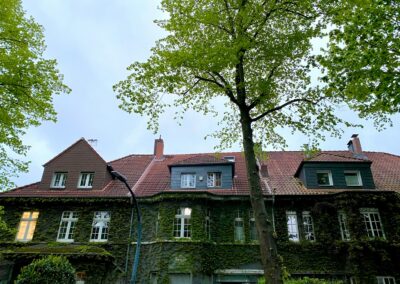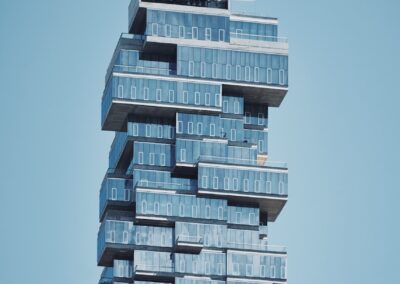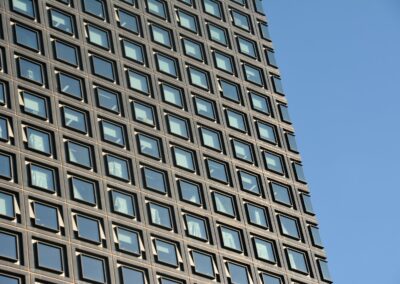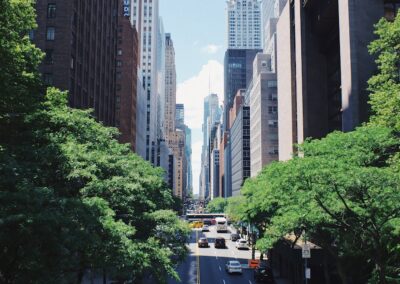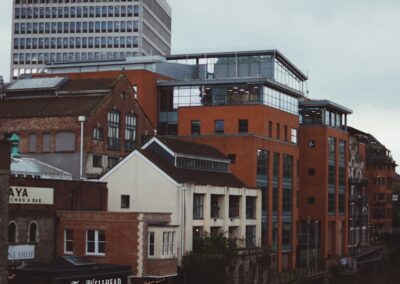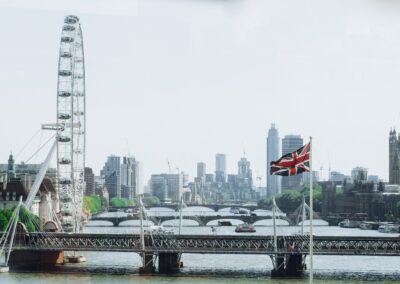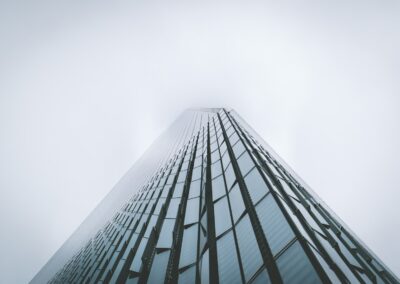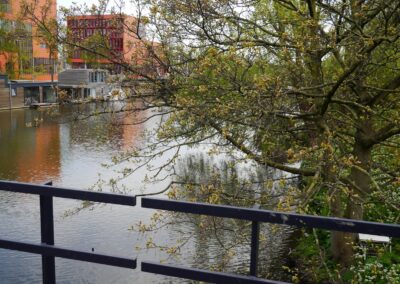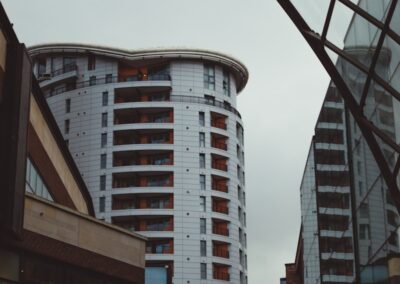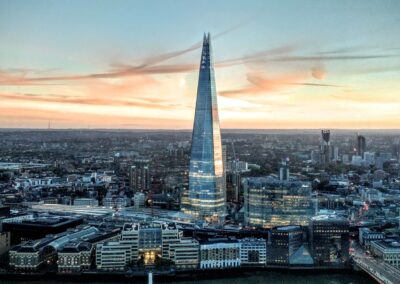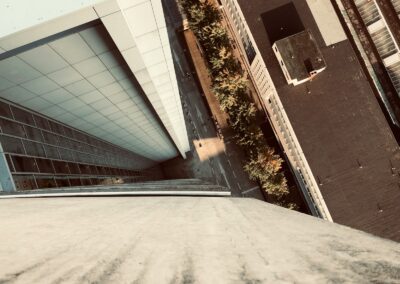Transforming Urban Living with Intelligent Solutions
The Rise of Skyscraper Cities and the Need for Smart Technologies
The incorporation of smart technologies in skyscraper cities is essential for enhancing safety, convenience, and energy management. As urban centers like Riyadh and Dubai continue to grow and evolve, the demand for intelligent solutions that can efficiently manage the complexities of high-rise living becomes increasingly critical. These cities are at the forefront of integrating advanced technologies to create sustainable and livable urban environments.
Riyadh, the capital of Saudi Arabia, is experiencing rapid urbanization and development. The city’s skyline is dotted with towering skyscrapers that house residential, commercial, and mixed-use spaces. To ensure these buildings are safe, convenient, and energy-efficient, Riyadh is leveraging smart technologies such as IoT (Internet of Things) sensors, AI-driven security systems, and automated energy management solutions. These innovations help monitor building conditions, enhance security, and optimize energy consumption, contributing to a more sustainable urban ecosystem.
Dubai, known for its futuristic architecture and ambitious urban projects, is also leading the way in the adoption of smart technologies for skyscraper cities. The city’s commitment to becoming a smart city is evident in its extensive use of AI, blockchain, and IoT technologies to manage its high-rise buildings. From smart elevators and energy-efficient HVAC systems to advanced fire detection and prevention technologies, Dubai’s skyscrapers are designed to offer residents and businesses unparalleled convenience and safety while minimizing environmental impact.
Enhancing Safety with Smart Technologies
Safety is a paramount concern in skyscraper cities, and the integration of smart technologies plays a crucial role in addressing this issue. In Riyadh, smart building systems equipped with AI and IoT capabilities enhance security by providing real-time monitoring and automated responses to potential threats. These systems can detect unauthorized access, monitor structural integrity, and alert authorities to any unusual activities, ensuring a safe living and working environment.
Dubai’s skyscrapers are equipped with state-of-the-art fire safety systems that utilize advanced sensors and AI algorithms to detect and respond to fire hazards swiftly. These systems can pinpoint the exact location of a fire, activate sprinklers, and guide occupants to safety using smart evacuation routes. Additionally, smart surveillance systems in Dubai’s high-rise buildings provide continuous monitoring, enabling quick responses to emergencies and improving overall security.
Both Riyadh and Dubai are also exploring the use of drones and robotic technologies for building inspections and maintenance. These technologies can access hard-to-reach areas, perform routine inspections, and carry out repairs, reducing the risk to human workers and ensuring that skyscrapers remain in optimal condition. By embracing these smart technologies, these cities are setting new standards for safety in urban living.
Improving Convenience with Smart Technologies
The integration of smart technologies in skyscraper cities significantly enhances convenience for residents and businesses. In Riyadh, smart home systems allow residents to control lighting, climate, security, and entertainment systems remotely via their smartphones. These systems use AI to learn occupants’ preferences and habits, automating routines and providing a personalized living experience. Smart elevators in Riyadh’s skyscrapers optimize travel time by predicting usage patterns and reducing wait times, improving the overall efficiency of building operations.
Dubai’s high-rise buildings feature smart parking systems that use sensors and AI to guide drivers to available parking spaces, reducing congestion and saving time. Furthermore, the city’s skyscrapers are equipped with smart waste management systems that monitor waste levels in real-time and schedule collections accordingly. This not only improves sanitation but also reduces the environmental impact of waste collection processes.
In addition to these conveniences, both Riyadh and Dubai are implementing smart public spaces within their skyscrapers. These spaces, equipped with free Wi-Fi, charging stations, and interactive information kiosks, provide residents and visitors with easy access to digital services and information. By creating connected and responsive environments, these cities enhance the quality of life for their inhabitants and visitors alike.
Optimizing Energy Management with Smart Technologies
Energy management is a critical aspect of sustainable urban development, and smart technologies offer effective solutions for optimizing energy use in skyscraper cities. In Riyadh, smart grids and energy management systems monitor and control energy consumption in real-time. These systems use AI to analyze usage patterns, predict demand, and adjust energy distribution accordingly, ensuring efficient use of resources and reducing costs.
Dubai’s skyscrapers are equipped with smart HVAC systems that use IoT sensors and AI algorithms to maintain optimal indoor temperatures while minimizing energy use. These systems adjust heating, cooling, and ventilation based on occupancy and external weather conditions, providing a comfortable environment while conserving energy. Additionally, Dubai is exploring the use of renewable energy sources, such as solar panels integrated into building designs, to further enhance sustainability.
Both cities are also implementing smart lighting systems that use motion sensors and daylight harvesting techniques to reduce energy consumption. These systems adjust lighting levels based on occupancy and natural light availability, providing adequate illumination while minimizing waste. By adopting these smart energy management technologies, Riyadh and Dubai are demonstrating their commitment to sustainable urban development and environmental stewardship.
Conclusion: The Future of Skyscraper Cities
The incorporation of smart technologies in skyscraper cities is revolutionizing urban living by enhancing safety, convenience, and energy management. As Riyadh and Dubai continue to grow and develop, their commitment to integrating advanced technologies sets a benchmark for other cities worldwide. By leveraging IoT, AI, and other smart solutions, these cities are creating sustainable, efficient, and livable environments that meet the needs of their residents and businesses.
The future of skyscraper cities lies in the continued innovation and adoption of smart technologies. As these technologies evolve, they will provide even more sophisticated solutions for urban challenges, driving progress and improving quality of life. Riyadh and Dubai’s leadership in this domain highlights the potential of smart technologies to transform urban landscapes and pave the way for a more connected and sustainable future.
In conclusion, the integration of smart technologies in skyscraper cities represents a significant step towards creating intelligent urban environments. By prioritizing safety, convenience, and energy management, cities like Riyadh and Dubai are leading the way in sustainable urban development. Their efforts serve as a model for other cities to follow, demonstrating the transformative power of technology in shaping the future of urban living.
#SmartTechnologies #SkyscraperCities #Safety #Convenience #EnergyManagement #AITechnology #ModernTechnology #BusinessSuccess #LeadershipSkills #ProjectManagement #Riyadh #Dubai

